News


News

Mastering Wire Splice Connectors A Comprehensive Guide
Release time:2024-05-09
viewed:1583
In the intricate world of electrical systems, where precision and reliability are paramount, mastering the art of wire splice connectors is indispensable. Whether you're an electrical enthusiast, a DIY hobbyist, or a seasoned professional, understanding the nuances of wire splice connectors is crucial for ensuring safe and secure electrical connections.
In this comprehensive guide, we delve into the fundamentals, types, advantages, and applications of wire splice connectors, equipping you with the knowledge needed to navigate the complexities of electrical wiring with confidence and precision.
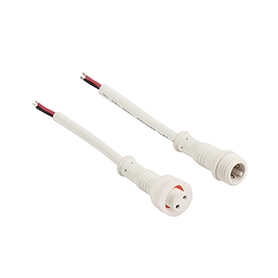
Join us on a journey to unravel the mysteries of wire splice connectors and elevate your electrical expertise to new heights.
Wire splice connectors serve as the linchpin in the intricate network of electrical connections that power our modern world. At their core, wire splice connectors are essential components designed to securely join electrical conductors, ensuring seamless transmission of power and data. Whether in automotive wiring, household electrical repairs, or industrial applications, these connectors play a pivotal role in maintaining the integrity and efficiency of electrical systems.
In this introductory exploration, we embark on a journey to uncover the fundamental principles behind wire splice connectors. We'll delve into their types, functionalities, and the critical role they play in facilitating reliable electrical connections. From the humble twist-on connectors to the sophisticated heat shrink variants, we'll illuminate the diverse landscape of wire splice connectors and lay the groundwork for mastering their application in various electrical projects.
Join us as we unravel the mysteries of wire splice connectors and embark on a voyage of discovery into the heart of electrical connectivity.
Types of Wire Splice Connectors
Wire splice connectors come in various forms, each tailored to meet specific needs and applications within the realm of electrical connections. Understanding the distinct characteristics and functionalities of each type is essential for selecting the most suitable connector for a particular project. Here, we explore four common types of wire splice connectors:
Twist-on wire connectors, also known as wire nuts, are perhaps the most recognizable type of wire splice connectors. They feature a conical shape with internal threads that grip onto stripped wires when twisted together. These connectors provide a quick and convenient method for joining wires, making them popular for both residential and commercial electrical installations. Twist-on connectors are available in various sizes to accommodate different wire gauges and are color-coded for easy identification based on wire size and application.
Crimp connectors utilize a mechanical crimping mechanism to join wires securely. These connectors consist of a metal sleeve or barrel that encases the stripped ends of the wires. Using a crimping tool, pressure is applied to the connector, compressing the metal sleeve onto the wires to create a reliable electrical connection.
Crimp connectors are commonly used in automotive wiring, telecommunications, and other industries where vibration and environmental factors may pose challenges to connection integrity.
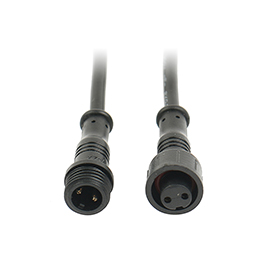
Soldering connectors, as the name suggests, rely on the process of soldering to fuse wires together. This method involves melting solder, a low-melting-point alloy, to create a permanent bond between the wires. Soldering connectors typically consist of a metal sleeve or terminal that houses the stripped wire ends.
Once the wires are inserted into the connector, heat is applied to melt the solder, forming a durable and corrosion-resistant connection. Soldering connectors are favored for their robustness and suitability for high-temperature environments.
Heat shrink connectors offer an additional layer of protection by incorporating a heat-shrinkable sleeve around the junction of the wires. These connectors typically feature a metal crimp barrel enclosed within a heat-shrinkable tubing. When heat is applied, either through a heat gun or other means, the tubing shrinks, creating a tight seal around the wires and providing insulation against moisture, corrosion, and mechanical stress.
Heat shrink connectors are widely used in outdoor and marine applications, as well as in environments where exposure to harsh conditions is a concern.
By understanding the characteristics and applications of these different types of wire splice connectors, electrical enthusiasts and professionals alike can make informed decisions when selecting the most appropriate connector for their specific needs. Whether it's the simplicity of twist-on connectors, the durability of crimp connectors, the permanence of soldering connectors, or the added protection of heat shrink connectors, there's a solution available to meet every wiring challenge.
Wire splice connectors for sale offer a myriad of benefits that make them indispensable components in electrical installations and repairs. Here, we explore the advantages of using wire splice connectors:
1. Secure Electrical Connections: Wire splice connectors provide a reliable method for joining electrical conductors, ensuring secure connections that minimize the risk of electrical faults, shorts, or failures. Whether it's a twist-on connector, crimp connector, soldering connector, or heat shrink connector, each type offers a robust solution for maintaining continuity and conductivity in electrical circuits.
2. Ease of Installation: Wire splice connectors are designed for ease of installation, making them accessible to both novice DIY enthusiasts and seasoned professionals alike. With simple techniques such as twisting, crimping, soldering, or heat shrinking, connectors can be applied quickly and efficiently, reducing installation time and labor costs.
3. Versatility: Wire splice connectors come in various types, sizes, and configurations to accommodate a wide range of wire gauges, insulation types, and application requirements. Whether it's joining stranded or solid wires, connecting different wire materials, or adapting to environmental conditions, there's a wire splice connector suitable for every scenario.
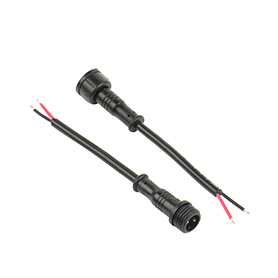
4. Adaptability to Different Environments: Certain wire splice connectors, such as heat shrink connectors, offer enhanced protection against environmental factors such as moisture, corrosion, vibration, and temperature fluctuations. By creating a sealed and insulated junction between wires, these connectors ensure long-term reliability even in harsh or challenging environments, such as outdoor installations, automotive wiring, or marine applications.
5. Cost-Effectiveness: Wire splice connectors are cost-effective solutions for establishing electrical connections compared to alternative methods such as soldering junctions or using proprietary connectors. With their affordability and widespread availability, wire splice connectors offer a budget-friendly option for various electrical projects without compromising on performance or reliability.
6. Reusability and Maintenance: In certain applications, wire splice connectors allow for easy disconnection and reusability, facilitating maintenance, repairs, or modifications to electrical systems without the need for extensive rewiring. Twist-on connectors, for example, can be unscrewed and reused, providing flexibility and convenience for future modifications or upgrades.
7. Compliance with Electrical Standards: Many wire splice connectors are designed and tested to meet stringent electrical standards and regulations, ensuring compatibility and compliance with industry requirements for safety, reliability, and performance. By using approved connectors from reputable manufacturers, installers can have confidence in the quality and integrity of their electrical installations.
Selecting the appropriate wire splice connector is crucial for ensuring secure and reliable electrical connections in various applications. Here's a guide on how to choose the right wire splice connector:
Different types of wires require specific connectors to ensure compatibility and optimal performance. Consider the following factors when selecting a wire splice connector based on the wire type:
Wire Gauge: Choose a connector that matches the gauge of the wire to ensure a proper fit and secure connection. Using a connector that is too small may result in poor contact, while one that is too large may not grip the wire effectively.
Solid vs. Stranded Wires: Certain connectors are designed specifically for solid or stranded wires. Solid wires require connectors with sharper internal threads or teeth to penetrate the wire insulation and establish a secure connection. On the other hand, connectors for stranded wires feature serrated or grooved surfaces to grip multiple strands effectively.
Wire Material: Consider the material composition of the wire, such as copper, aluminum, or tinned copper. Some connectors are optimized for specific wire materials to ensure compatibility and conductivity.
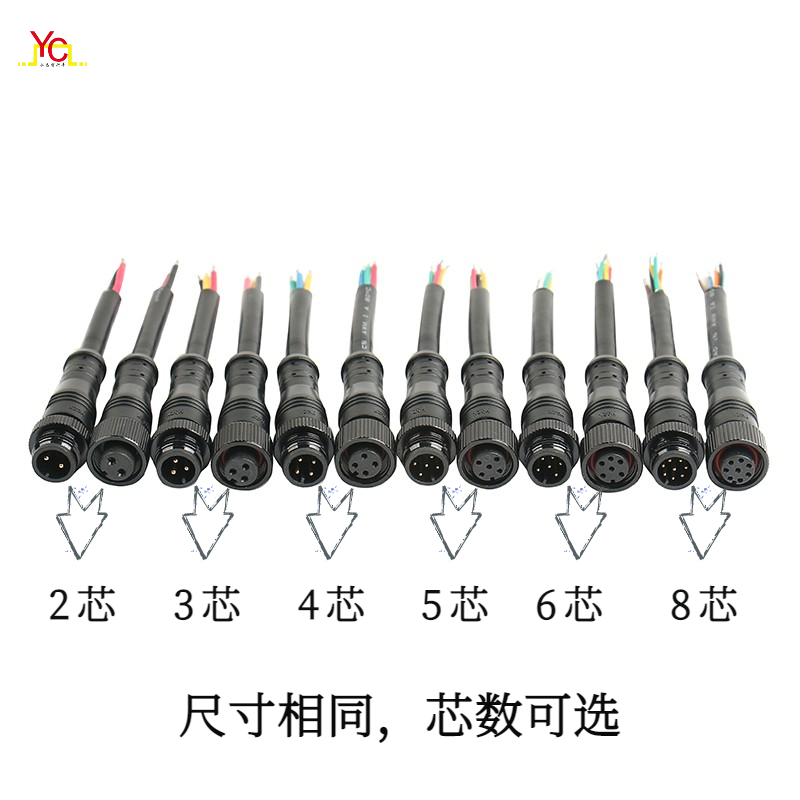
Assess the electrical load and environmental conditions of the application to determine the appropriate wire splice connector:
Current Rating: Choose a connector with a current rating that exceeds the expected electrical load to ensure safety and prevent overheating or voltage drop. Refer to manufacturer specifications and electrical codes for guidance on selecting connectors with suitable current-carrying capacity.
Environmental Factors: Consider the operating environment where the connectors will be installed, including factors such as temperature variations, moisture exposure, chemical exposure, and mechanical stress. Select connectors that are designed to withstand these conditions, such as heat shrink connectors for outdoor installations or marine environments.
Evaluate the ease of installation and durability of the wire splice connector to ensure efficient installation and long-term reliability:
Installation Method: Choose a connector that aligns with the installation method preferred or available tools and techniques, whether it's twisting, crimping, soldering, or heat shrinking.
Durability: Consider the durability and lifespan of the connector, especially in applications where frequent maintenance or modifications may be required. Select connectors made from high-quality materials that offer resistance to corrosion, vibration, and mechanical stress for reliable performance over time.
By considering these factors, you can confidently select the right wire splice connector for your specific application, ensuring safe, reliable, and efficient electrical connections. Consult with manufacturers, electrical professionals, or industry experts for additional guidance and recommendations based on your unique requirements.
When it comes to ensuring the integrity and reliability of your electrical connections, choosing the right wire splice connectors and related equipment is paramount. At Shenzhen Yongchang Zhixingfeng Electronics Co., Ltd., we specialize in providing high-quality, waterproof wire splice connectors and a wide range of related products to meet your specific needs.
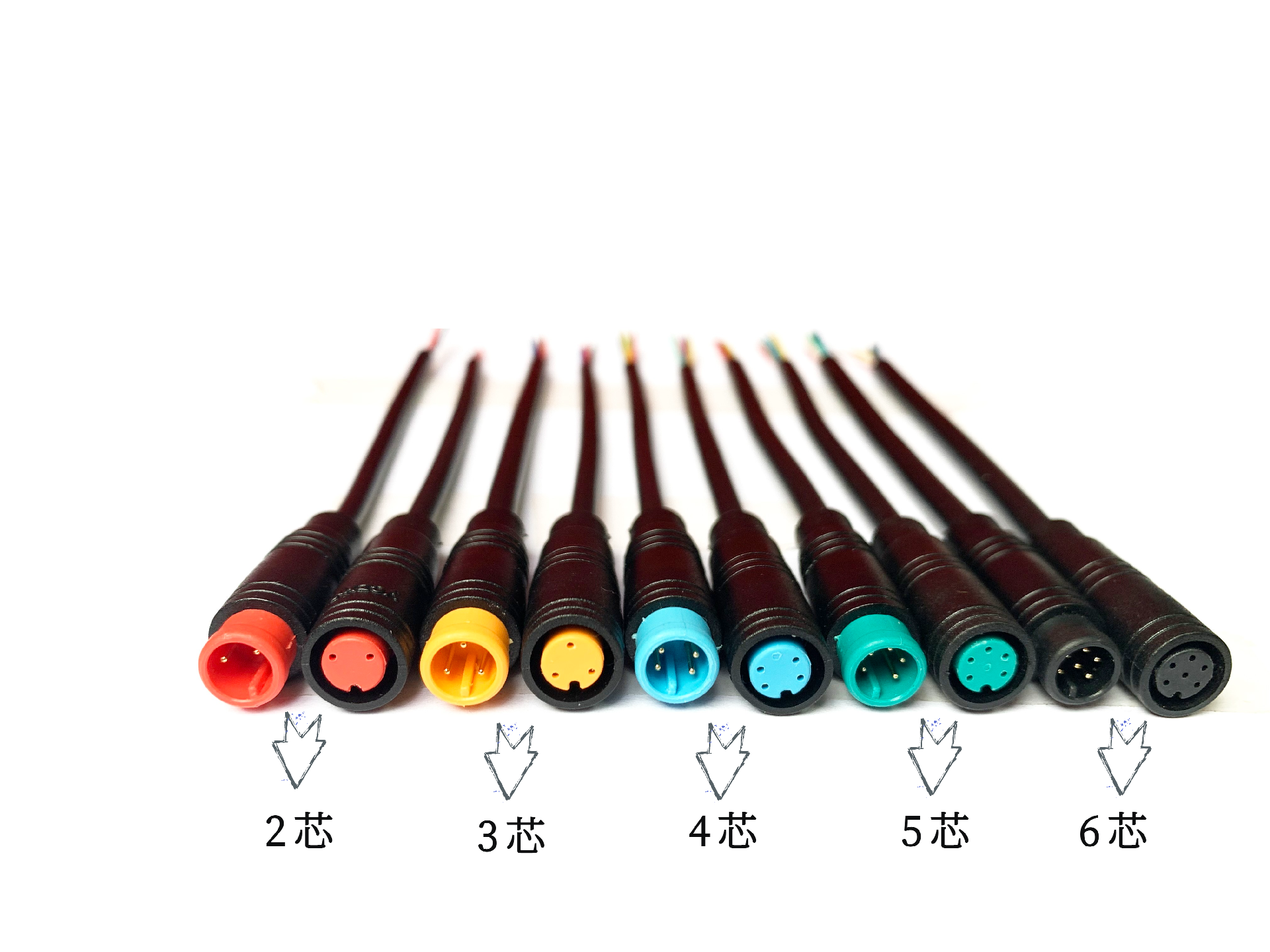
With our expertise in cable waterproof connectors and years of experience in research, development, production, and sales, we are committed to delivering solutions that exceed expectations. Whether you require waterproof connectors for LED lighting, new energy vehicles, kitchen and bathroom appliances, solar street lamps, or other applications, we have the products to meet your requirements.
Furthermore, our dedication to offering wholesale prices ensures that you receive competitive pricing without compromising on quality. By partnering with us, you gain access to reliable products at cost-effective rates, enabling you to optimize your projects while staying within budget.
If you're in need of wire splice connectors or related equipment at wholesale costs, we invite you to contact us at Shenzhen Yongchang Zhixingfeng Electronics Co., Ltd. Our team is ready to assist you with your inquiries, provide expert advice, and facilitate your orders efficiently. Trust us to be your dependable partner in achieving waterproof, reliable electrical connections for your projects.